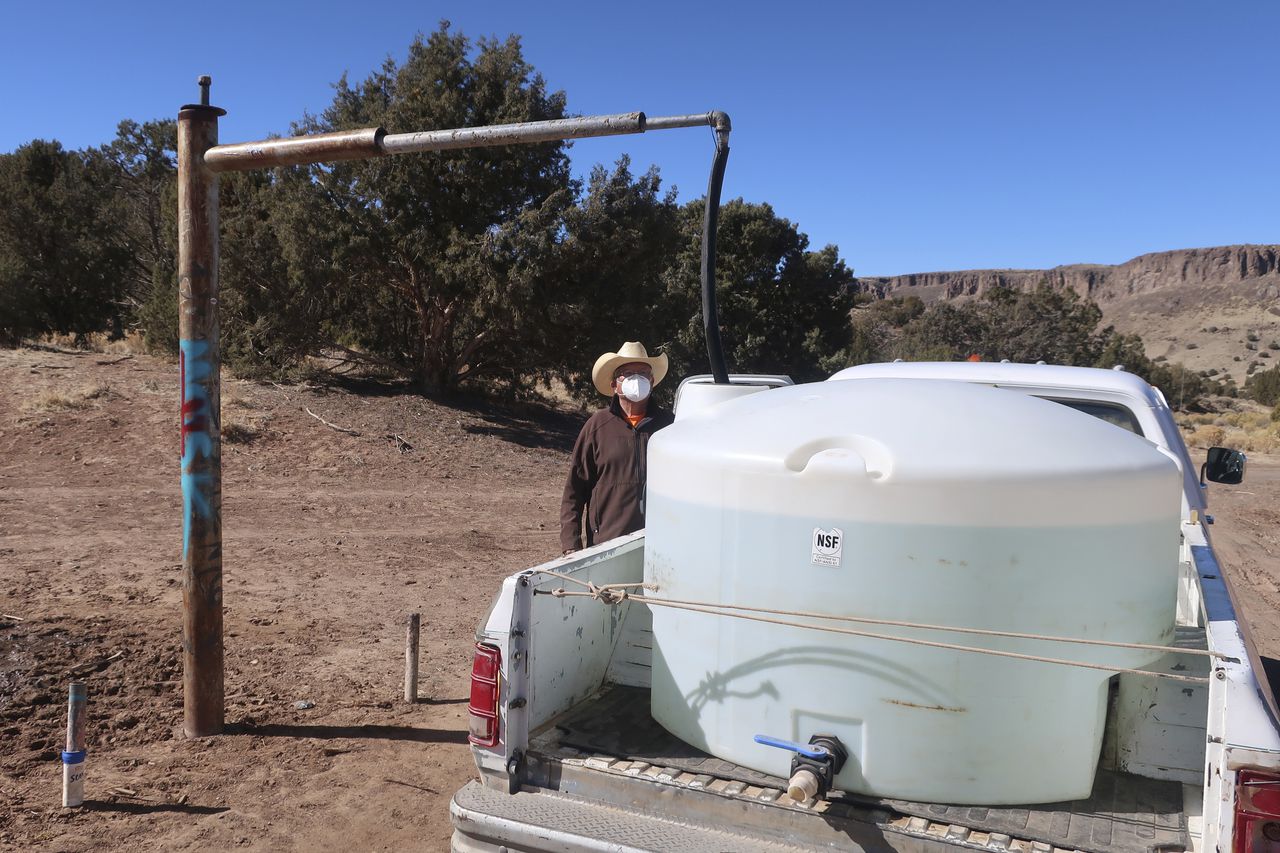Supreme Court ruling against Navajo Nation worsens an already dire tribal water crisis
In a 5-4 vote, the Supreme Court has ruled against the Navajo Nation in its fight to secure water rights to the Colorado River, leaving thousands of families on the reservation to remain without access to running water.
The Thursday ruling on the case Navajo Nation v. Arizona hinged upon a 150-year-old treaty requiring the federal government to meet the water requirements of Native American reservations.
Justice Brett Kavanaugh, who wrote the majority opinion, determined that the Navajo Treaty of 1868 did not require the federal government to proactively ensure water access for the tribe.
“It is not the Judiciary’s role to rewrite and update this 155-year-old treaty,” wrote Kavanaugh. “Rather, Congress and the President may enact — and often have enacted — laws to assist the citizens of the western United States, including the Navajos with their water needs.”
Water is a critical resource for the Navajo Nation, considered the U.S.’s largest reservation. A third of the approximately 175,000 people who live there don’t have running water in their homes.
Members of those thousands of households without running water must drive for miles to refill barrels and jugs with water to bring back home and use for drinking, cleaning, cooking and bathing. Some depend on unregulated wells for their water needs.
“The average person on the Navajo Nation reservation uses just seven gallons of water a day. The national average is 80 to 100 gallons [per day],” said attorney Shay Dvoretzky, who represented the Navajo Nation during the case’s hearing before the Supreme Court in March. “The Nation only asks that the United States, as trustee, assess its people’s needs and develop a plan to meet them.”
But Arizona, Nevada, Colorado and several water districts in California maintained that the government’s involvement would disrupt their management of the river’s dwindling water supply.
Kavanaugh, along with Chief Justice John Roberts and Justices Clarence Thomas, Samuel Alito and Amy Coney Barrett, ruled that it would be “anomalous to conclude that the United States must take affirmative steps to secure water.”
“Under the treaty, the United States has no duty to farm the land, mine the minerals, or harvest the timber on the reservation — or, for that matter, to build roads and bridges on the reservation,” Kavanaugh writes. “Just as there is no such duty with respect to the land, there likewise is no such duty with respect to the water.”
Speaker of the 25th Navajo Nation Council Crystalyne Curley and Navajo Nation President Buu Nygren expressed disappointment in Thursday’s ruling.
“Our leaders long ago fought for our right to our precious homeland between our Sacred Mountains and that included the water right, the right to life,” Speaker Curley said in a statement. “Through the sacrifices and prayers of our ancestors, we secured the right to have access to water based on our treaties. Our leaders negotiated the terms of our treaties in good faith with the federal government.”
President Nygren remains resolute in the nation’s pursuit for water rights.
“As our lawyers continue to analyze the opinion and determine what it means for this particular lawsuit, I remain undeterred in obtaining quantified water rights for the Navajo Nation in Arizona,” Nygren said.
Justice Neil Gorsuch, who wrote the dissenting opinion, accused the majority of “misreading” the Navajo Nation’s request.
“Where do the Navajo go from here?” Gorsuch wrote. “The Navajo have waited patiently for someone, anyone, to help them, only to be told (repeatedly) that they have been standing in the wrong line and must try another.”
According to High Country News, this decision impacts the “entire ecosystem” of the Navajo Nation that relies upon water to sustain life within the reservation and “also for carrying out traditional practices and ceremonies.”
The decision also highlights the broader challenges faced by Indigenous communities across the country in securing their rights to vital natural resources. According to The Guardian, an estimated one in 10 indigenous Americans lack access to safe tap water or basic sanitation, “without which a host of health conditions including COVID-19, diabetes and gastrointestinal disease are more likely.”
Reduced rainfall and droughts linked to climate change has further strained access to water from the Colorado River — a crucial water source for 40 million individuals throughout the entire Southwest.
The seven states dependent on the river have long been entangled in legal disputes concerning its management. Recently, they have faced challenges in reaching an agreement on implementing water consumption reductions.
“Water is necessary for all life and when our ancestors negotiated agreements with the United States to secure our lands and our protection, water was understood and still is understood to be inseparable from the land and from our peoples,” said Fawn Sharp, President of the National Congress of American Indians.
“The Supreme Court has once again assisted in the United States’ centuries-long attempts to try to get out of the promises they have made to Tribal Nations by stating that treaties only secure access to water, but do not require the United States to take any steps to protect or provide that water to our people.”
